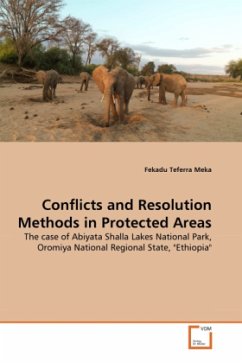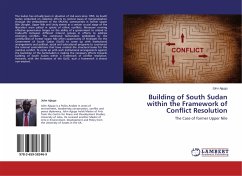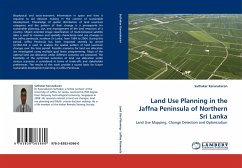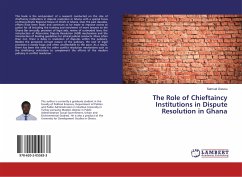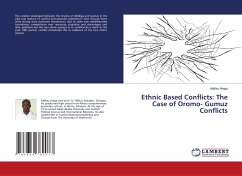
Peaceful Resolution of Conflicts in Africa: The Case of the Conflict between Cameroon and Nigeria over the Bakassi Peninsula
Versandkostenfrei!
Versandfertig in 6-10 Tagen
27,99 €
inkl. MwSt.

PAYBACK Punkte
14 °P sammeln!
This paper dwells on the subject of the application of diplomatic means in the resolution of disputes/conflicts in Africa, taking the Nigeria-Cameroon dispute over Bakassi as a case in point. Bilateralism appeared to be Cameroon's preferred diplomatic interaction following independence but it somehow adopted a more open, multilateral and aggressive diplomatic overture within the international arena under the Biya government to argue for its continued possession of the Bakassi Peninsula. The main objective of this paper is to evaluate the application of diplomatic means in the resolution of dis...
This paper dwells on the subject of the application of diplomatic means in the resolution of disputes/conflicts in Africa, taking the Nigeria-Cameroon dispute over Bakassi as a case in point. Bilateralism appeared to be Cameroon's preferred diplomatic interaction following independence but it somehow adopted a more open, multilateral and aggressive diplomatic overture within the international arena under the Biya government to argue for its continued possession of the Bakassi Peninsula. The main objective of this paper is to evaluate the application of diplomatic means in the resolution of disputes/conflicts in the conflict settlement between Cameroon and Nigeria over the Bakassi attesting to the fact that democratic states do not go to war with each other. The specific objectives are: (1) to review the diplomacy/negotiation/bilateralism discourse; (2) examine the course of the crisis; (3) to discuss the causes of the conflict between Cameroon and Nigeria over the Bakassi; (4) toexamine how the International Court of Justice (ICJ) resolved the conflict and finally (5) to investigate why diplomacy prevailed in the Bakassi Peninsula Case.





